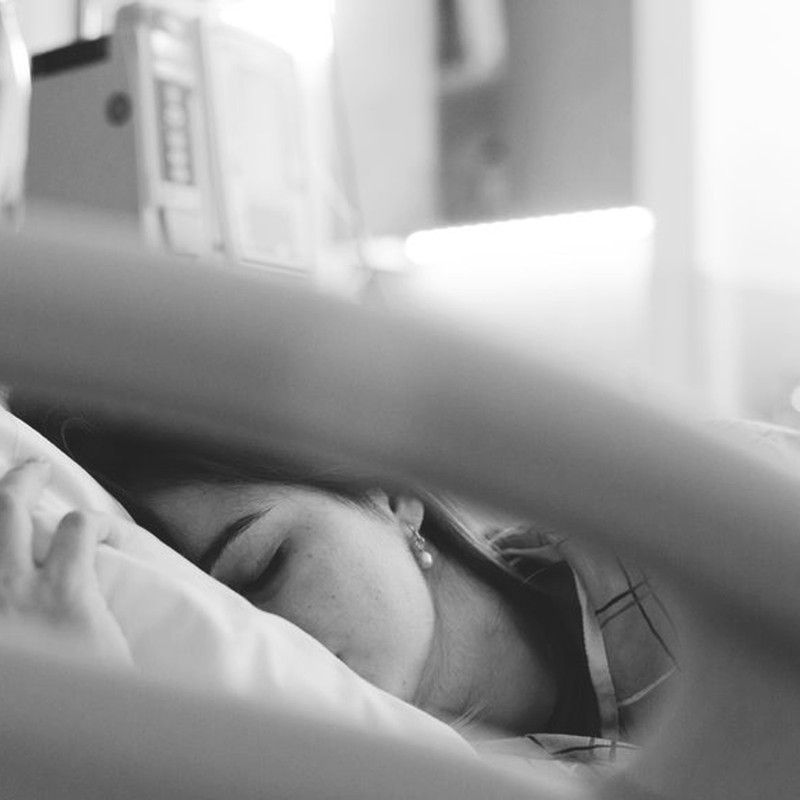Why You Could Be At Risk Of Pneumonia This Winter
We hear it a lot, but what actually is pneumonia?
Pneumonia is an infection of the tissues of one or both lungs and is usually caused by bacteria or viruses. It causes the alveoli (air sacs) inside the lungs to fill with fluid, making it hard for them to work properly; meanwhile, the compromised lungs struggle to pass oxygen into the blood stream.
How many people get pneumonia each year?
It’s relatively common in the UK, affecting eight out of every 1,000 people per year – that’s just under 1% of the population, or around 660,000 people. It’s more widespread during the autumn and winter seasons.
And can anyone come down with it?
Yes, pneumonia can affect anyone. The most susceptible groups include the very young and elderly, who can become seriously ill and need hospital treatment, but being young and healthy doesn’t mean someone won’t contract it. Smokers and people with underlying chronic health conditions such as asthma, cystic fibrosis, or heart, liver or kidney conditions are all at increased risk. As are those with reduced immunity, including people who are HIV positive or have AIDS, people undergoing chemotherapy and organ transplant patients.
Have you noticed more healthy, younger people getting pneumonia?
I wouldn’t say there are significantly more healthy people in their 30s and 40s getting pneumonia but this age group is always surprised when they are diagnosed with the disease which is generally associated with older people or those who live with respiratory complications. However, in my experience, when I've seen younger patients come down with pneumonia, it is more often than not people who are particularly stressed or overworked who succumb as their lifestyle has had a knock on effect to lower their immune system, making them more susceptible to the contracting the disease.
So what causes the disease?
There are many causes of pneumonia, which can be bacterial or viral. Bacterial pneumonia isn’t as infectious as viral pneumonia. Flu is a common cause of viral pneumonia, while having a lowered immune system or suffering from a respiratory tract infection can lead to bacterial pneumonia, with the most common cause being streptococcus pneumoniae. It’s unusual, but can happen, that people pick up pneumonia while in hospital.
What symptoms should you look out for?
Common symptoms include a cough, difficulty breathing, fever, rapid heart rate, feeling generally unwell, sweating and shivering, loss of appetite and chest pain. In the elderly it can present with confusion. Symptoms can develop rapidly over 24-48 hours, or more slowly over a few days.
How can you tell the difference between flu and pneumonia?
Flu typically has more pronounced muscle aches and pains than pneumonia. The symptoms leading up to a viral pneumonia usually include breathing difficulties which often follow upper respiratory symptoms such as a runny nose, sneezing and a sore throat. The flu virus can actually cause pneumonia so people should be aware that if they have had flu and they are not recovering well or feel a distinct deterioration in their breathing, they may have contracted pneumonia. Flu symptoms usually come on very quickly from ‘nowhere’, whereas pneumonia symptoms usually come on after a previous illness, typically flu or a chest infection. If you’re not sure, consult your GP and don’t leave it too long before you do so.
How serious is the condition?
For the vast majority of people, pneumonia can be treated under supervision of the GP or in hospital. But in rare cases it can be fatal – around 29,000 people die from the disease each year in the UK due to complications such as lung abscesses and septicaemia.
And how is it treated?
Mild pneumonia can be treated at home with rest, oral antibiotics and fluids. Recovery tends to be straightforward, although there may be a residual cough for a few weeks. At-risk groups may need hospital treatment as they may develop severe pneumonia and complications.
Can you do anything to prevent it?
People at high risk should be offered the pneumococcal vaccine and the flu vaccine. And as with any illness, good standards of hygiene will reduce the risk of germs spreading, especially by covering the mouth and nose when coughing and sneezing. Throwing away used tissues immediately is highly recommended too, as the germs can survive for several hours after leaving the mouth or nose.
What should you do if you think you have pneumonia?
It’s important to see your GP if you’re feeling unwell and have typical symptoms of pneumonia. Don’t wait for too long to see a doctor – the sooner it’s picked up, the easier it is to treat. If you’re experiencing chest pains, rapid breathing or confusion you should seek urgent medical attention. If you think you have pneumonia, stop smoking immediately to reduce the risk of lung damage.
Doctaly is a new service allowing people to book a guaranteed 15-minute appointment with a GP near their home or work; visit Doctaly.com for more information
DISCLAIMER: We endeavour to always credit the correct original source of every image we use. If you think a credit may be incorrect, please contact us at info@sheerluxe.com.






